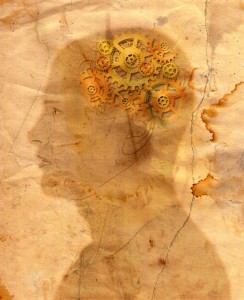 On the principle of starting with the most-available, easiest-to-access, demonstrably-effective tool, we usually advise even nonbelievers to try the Step fellowships. If they don’t work, there are other tools. However, the Steps may benefit from a little “re-engineering” to increase the nonbeliever’s chances of success. Here’s the next “Re-Engineered Recovery Tool,” the Fourth step:
On the principle of starting with the most-available, easiest-to-access, demonstrably-effective tool, we usually advise even nonbelievers to try the Step fellowships. If they don’t work, there are other tools. However, the Steps may benefit from a little “re-engineering” to increase the nonbeliever’s chances of success. Here’s the next “Re-Engineered Recovery Tool,” the Fourth step:
Step Four: Made a searching and fearless moral inventory of ourselves.
This step is based on the understanding that the heart of change is self-knowledge, translated into productive action. And self-knowledge doesn’t happen in a blinding flash—not even for believers. Plus, there’s a particular challenge for addicts and alcoholics, who have usually expended considerable effort on staying unaware of unpleasant realities about themselves.
The Fourth step is a guide for developing useful (if often painful) self-knowledge for undertaking change. Moral issues are those related to right and wrong, and a moral inventory is based on a moral code. For believers, the code is usually supplied by a church or theology. Non-believers build moral codes without churches, because you don’t need to believe in a god(s) to know the difference between right and wrong, nor do you need a deity to undertake an examination of your own character with the kind of rigorous honesty demanded by the Fourth.
Suppose during active drinking or using you became estranged from someone you love— a child, perhaps— with years of bitter conflict and resentment on both sides. Even thinking about them brings up the anger all over again, but you also feel sad and wonder if it might have been partly your fault. Those are conflicting feelings, and sorting through them isn’t easy. In taking a moral inventory, you might ask:
- When did the conflicts begin?
- What usually sparked the arguments? Were there problems that kept recurring?
- When the arguments happened was I sometimes drunk or stoned, or recovering from a binge?
- Who usually made the first argumentative or demanding move—did I ever do that?
- Was my child really angry at me because of things related to my drinking or using?
- Did I make my responses to her/his anger the best way?
- Knowing what I know about my disease now, can I see its influence in ways I didn’t see then?
- Is there any hope of reconciling in the future?
- Do I feel any remorse over the situation?
- Would I someday like to make amends?
Detailed self-questioning like this provides a much clearer picture of those conflicted, emotion-laden problems, and sometimes points to possible solutions. It’s also important to pay special attention to the kind of “toxic character traits” of addiction that are related to so many problems:
- Perfectionism
- Unreasonable/unrealistic expectation
- Impatience with others
- Holding onto resentments
- Shame and self-hate about things done under the influence
Just as addiction distorts the personality (usually for the worse) recovery can strengthen character and help you build integrity and fidelity to what you know about right and wrong.
To “work” Step Four, try this: Get a notebook, and write out a list of all the people, institutions, and forces that you blamed for your drinking and drug use. Think about it. Do you blame your parents? An illness or injury? Boyfriend/girlfriend? Bosses or co-workers? The army? The social worker? The bank? Yourself? Be as honest as you can about it, and thorough. It will take some time. If you end up with only four or five items on your list, you still have some denial to work through. Keep trying. You’ve been doing a lot of blaming for a long time, and that’s difficult to admit. Once you’re finished, look at each person, place, or thing, and ask these questions:
- What makes me think this (person, thing, etc.) contributed to my problem?
- Looking back, do I feel that I was right or wrong in my judgment?
- Why do I feel I was right or wrong?
- Did I resent or punish this person for something that was really the result of my addiction?
- Is this something I might want to make amends for, someday?
Get help from a sponsor or recovery guide to help if you have questions about the process.
Coming soon: Taking the Fifth
Recovery Without God -More from this series:
- Recovery Without God
- Taking Charge by Having Faith
- Atheology for Recovery
- The Church of the Exalted Chemical
- Coordinates on the Recovery Map
- Finding a Skeptical Starting Point
- Re-Engineering Recovery Tools
- Nonbelievers Moral Inventory
- Taking the Fifth
- The Readiness is All
- Humility Ain't for Wimps
- The Damage Assessment
- Do-It-Yourself Repairs
- Good Practice Over Bad Habit
- Balancing Act









